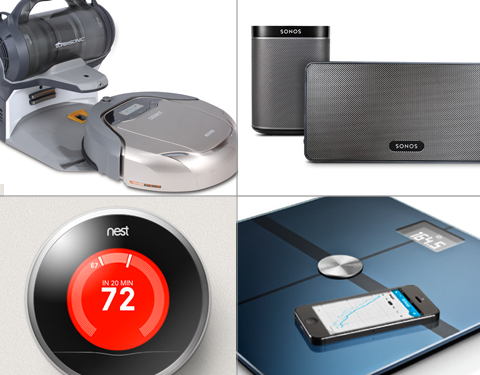Google's Nest Recalls Smoke Detector
Algorithm-detection flaw may misread any nearby motion as a command to silence an alarm.


8 Gadgets For The High-Tech Home
8 Gadgets For The High-Tech Home (Click image for larger view and slideshow.)
Google's Nest Labs is recalling about 440,000 smoke detectors because activity near the devices can be misinterpreted as a command to silence the alarm.
The company, acquired in January by Google for $3.2 billion, identified the problem in early April. CEO Tony Fadell said in a blog post at the time that recent laboratory testing of the Nest Protect: Smoke + Carbon Monoxide alarm revealed that the device's Nest Wave feature, which allows users to turn off the alarm with a wave of the hand, could be activated inadvertently, thereby preventing the device's alarm from sounding during a fire.
A list of frequently asked questions posted by Nest Labs indicates that the flaw lies in the Nest Wave algorithm, which analyzes motion detection data. Nest Labs halted sales of its smoke detector voluntarily last month and temporarily addressed the issue through a software update that disables Nest Wave. The recall notice formalizes the company's response to the problem through the involvement of the US Consumer Product Safety Commission (CPSC).
[OK Google, tell me about my new Chromebook features. See Chrome OS Update Improves Security, Supports Folders.]
The recall does not require removing the device and sending it back to Nest. The CPSC says that customers who have not connected their Nest Protect to the Internet through a WiFi network should do so to receive a software update that disables Nest Wave. Customers with devices already connected to the Internet are advised to confirm that the Nest Wave feature has been disabled by checking the Nest Sense section of their Nest account via Nest's mobile application or the Web.
{image 1}
Nest Labs has not received any reports of incidents, injuries, or property damage arising from this issue, according to the CPSC. Nest Protect is not currently available. When it was being sold, it cost about $130 and was available from Best Buy, Home Depot, and other retailers, as well as from Amazon.com, BestBuy.com, HomeDepot.com, and Nest's website.
Between 1999 and 2010, deaths due to unintentional, non-fire-related carbon monoxide poisoning averaged about 430 annually in the US, according to the Centers for Disease Control and Prevention. The CPSC says that in 2010, there were 161 unintentional non-fire carbon monoxide poisoning deaths associated with consumer products under the CPSC's jurisdiction.
Consumer product recalls occur fairly often, at a rate of around 80 per quarter. But they're new for Google, which wasn't a hardware company (apart from its Search Appliance and its home-grown data center hardware) until two years ago, when it acquired Motorola Mobility (since sold to Lenovo). The Nest Protect recall appears to be the first recall for a Google company. Last year, Google helped coordinate a HP Chromebook 11 recall that involved a faulty charger.
IT is turbocharging BYOD, but mobile security practices lag behind the growing risk. Also in the Mobile Security issue of InformationWeek: These seven factors are shaping the future of identity as we transition to a digital world. (Free registration required.)
About the Author
You May Also Like






